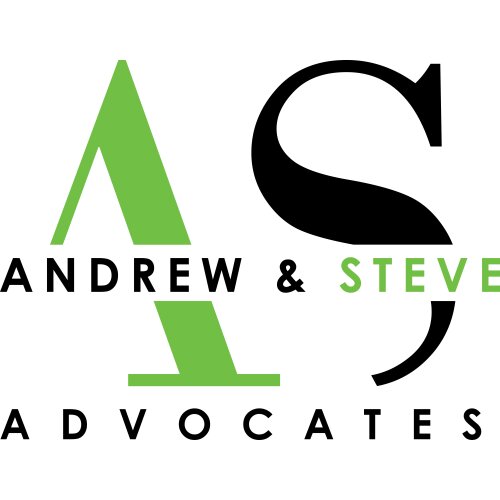Best Health insurance Lawyers in Kenya
Share your needs with us, get contacted by law firms.
Free. Takes 2 min.
Or refine your search by selecting a city:
List of the best lawyers in Kenya
About Health Insurance Law in Kenya
Health insurance in Kenya is a crucial aspect of the healthcare system, providing citizens with the means to access medical services without the financial burden of out-of-pocket expenses. The primary framework for health insurance is governed by the National Hospital Insurance Fund (NHIF), which is a state corporation established under the Ministry of Health. It is the most significant health insurance provider in the country, offering coverage to formal and informal workers. Private health insurance also plays a vital role, offering supplementary options or full coverage independent of NHIF. The legal landscape around health insurance ensures that citizens have access to quality healthcare services, mandating contributions and ensuring compliance from both employers and individuals.
Why You May Need a Lawyer
Dealing with health insurance can be daunting, especially when disputes or misunderstandings arise. You may need a lawyer in the following situations:
- Disputes over claims, where insurers refuse to pay for covered services.
- Clarification of your rights and obligations under the NHIF or private insurance policies.
- Handling cases of insurance fraud, whether you are accused or a victim.
- Assistance with contract review to ensure fair terms and proper understanding of the policy.
- Guidance in complex medical billing issues and appeals regarding denied claims.
Local Laws Overview
Kenya's health insurance landscape is primarily regulated by the National Hospital Insurance Fund Act, which guides the operations and contributions to the NHIF. Key aspects include:
- Mandatory contributions from both employers and employees towards NHIF.
- Provisions for voluntary contributions, especially for self-employed or informal workers.
- Regulation of private health insurance providers to ensure fair practices and consumer protection.
- Legal frameworks supporting universal healthcare coverage as part of Kenya's Vision 2030 goals.
- Provisions for dispute resolution between insurers and insured parties through arbitration and other legal processes.
Frequently Asked Questions
What is NHIF, and who should contribute?
NHIF is the National Hospital Insurance Fund, mandatory for all employees in Kenya. Both employers and employees are required to make monthly contributions, with options for voluntary contributions for those in informal employment.
Can I have both NHIF and private insurance?
Yes, you can. NHIF provides government-mandated coverage, while private insurance can offer additional benefits or expanded coverage, reducing out-of-pocket expenses.
What happens if I miss an NHIF payment?
Missing an NHIF payment can result in penalties and the suspension of benefits. It is essential to keep up with payments to ensure continued coverage.
How can I resolve a dispute with my insurer?
Disputes with insurers can often be resolved by filing a formal complaint with the insurance company's customer service department. If unresolved, you might need to engage legal services for arbitration or litigation.
What types of health services does NHIF cover?
NHIF covers a wide range of inpatient and outpatient services, including maternity, surgery, and emergency services. However, the specific coverage may vary, and it is advisable to review your policy details.
Is NHIF coverage enough for my medical needs?
While NHIF provides a broad range of basic health benefits, certain treatments, hospitals, or levels of care might not be included. You may need supplementary private insurance for extensive medical needs.
Can foreigners access health insurance in Kenya?
Foreigners, whether residents or expatriates, can access private health insurance in Kenya. NHIF primarily covers Kenyan citizens and residents.
What should I do if my claim is denied?
If your claim is denied, request a written explanation from your insurer, review the denial reasons, and consider any appeal options provided by the insurer. Legal advice may be necessary to navigate disputes.
Are there legal penalties for not having health insurance?
For employees under the NHIF regulation, failure to contribute could result in penalties and lack of access to healthcare benefits. Currently, there are no direct penalties for not having private health insurance.
How do I switch from NHIF to a private insurance plan?
Transitioning to private insurance involves selecting a plan that suits your needs and budget. NHIF membership can continue alongside as it is public and generally mandatory. Compare benefits, premiums, and coverage areas before making a switch.
Additional Resources
For individuals seeking more information or assistance with health insurance issues in Kenya, consider reaching out to the following resources:
- National Hospital Insurance Fund (NHIF) - For queries on contributions and coverage.
- Insurance Regulatory Authority (IRA) - For guidelines and complaints against private insurers.
- Consumer Federation of Kenya - For consumer rights and protection.
- Kenya Medical Association - For professional guidance and medical legal advice.
Next Steps
If you need legal assistance in health insurance matters, consider the following steps:
- Gather all your health insurance documents, including policy details and correspondence with insurers.
- Identify the specific issue or dispute area that requires legal advice.
- Research and contact experienced lawyers or law firms that specialize in insurance and health law.
- Arrange a consultation to discuss your case and understand the potential legal proceedings.
- Consider alternative dispute resolution methods like mediation or arbitration before pursuing litigation.
Lawzana helps you find the best lawyers and law firms in Kenya through a curated and pre-screened list of qualified legal professionals. Our platform offers rankings and detailed profiles of attorneys and law firms, allowing you to compare based on practice areas, including Health insurance, experience, and client feedback.
Each profile includes a description of the firm's areas of practice, client reviews, team members and partners, year of establishment, spoken languages, office locations, contact information, social media presence, and any published articles or resources. Most firms on our platform speak English and are experienced in both local and international legal matters.
Get a quote from top-rated law firms in Kenya — quickly, securely, and without unnecessary hassle.
Disclaimer:
The information provided on this page is for general informational purposes only and does not constitute legal advice. While we strive to ensure the accuracy and relevance of the content, legal information may change over time, and interpretations of the law can vary. You should always consult with a qualified legal professional for advice specific to your situation.
We disclaim all liability for actions taken or not taken based on the content of this page. If you believe any information is incorrect or outdated, please contact us, and we will review and update it where appropriate.
Browse health insurance law firms by city in Kenya
Refine your search by selecting a city.

















